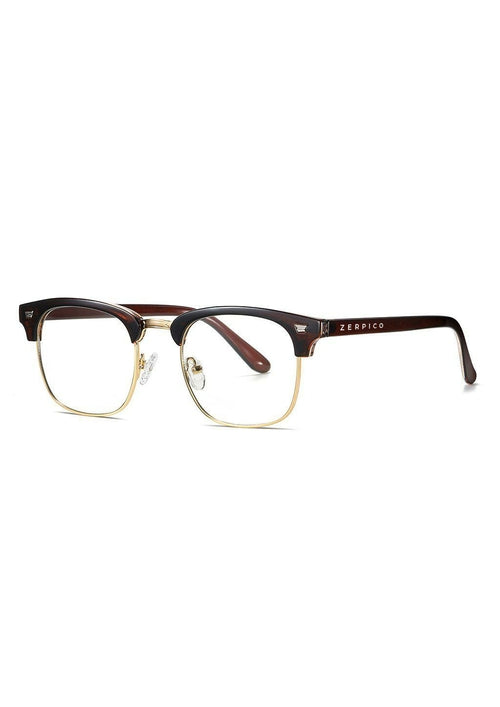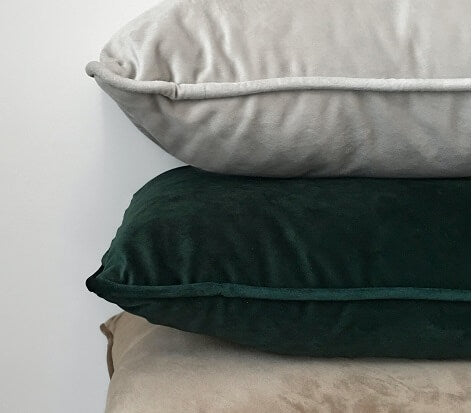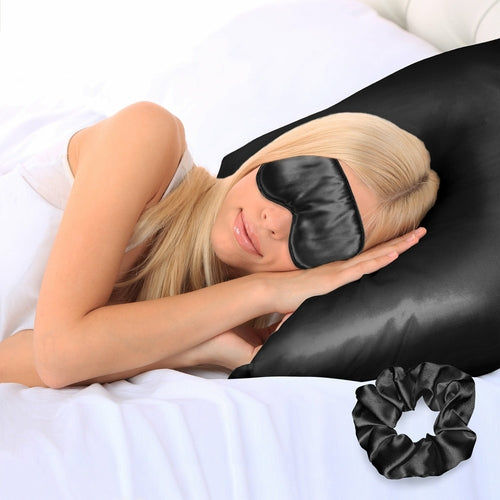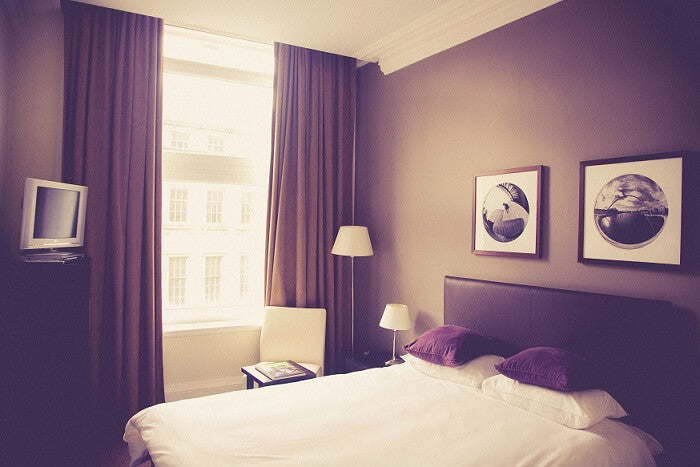
Understanding Blue Light and Its Impact on Sleep
In our digitally dominated era, it's almost impossible to dodge the glow of screens, be it from our beloved smartphones, indispensable tablets, or essential computers. This ubiquitous glow comes packed with something called blue light, a component of the visible light spectrum that, despite its innocuous appearance, packs a punch when it comes to our sleep health. Blue light stands out because of its short wavelength and high energy, characteristics that make it exceptionally stimulating to our brains.
Diving a bit deeper, it's this stimulation that plays the villain in our bedtime stories. As the evening rolls in and we continue to engage with our devices, the blue light emitted interferes directly with our body's melatonin production. Melatonin, often referred to as the 'sleep hormone,' is crucial in signaling to our bodies that it's time to wind down and prepare for sleep. However, when blue light plays interference, our internal clocks get confused, leading to difficulties in falling asleep and achieving deep, restorative sleep cycles.
It's this sneaky disruption of our natural rhythms that spotlights the importance of mitigating our exposure to blue light, especially in the hours leading up to bedtime. By understanding how blue light impacts our sleep, we're taking the first step towards reclaiming a night of restful, uninterrupted sleep. The journey to better sleep hygiene begins with acknowledging the role of blue light and seeking ways to lessen its impact as night falls.
The Science Behind Blue Light Glasses
Diving into the nitty-gritty of how blue light glasses work unveils a fascinating intersection of optics and biology. These innovative glasses are not just ordinary spectacles; they are engineered with precision to specifically target and filter out the blue part of the light spectrum that our digital devices emit in abundance. This targeted filtration is pivotal because it's the blue light that is most disruptive to our melatonin production, as previously discussed. The lenses in blue light glasses contain special coatings or are made of materials that effectively block or absorb this high-energy, short-wavelength light before it reaches your eyes.
This technology is rooted in understanding how light influences our internal body clock, or circadian rhythm. By curtailing the amount of blue light that enters our eyes, these glasses help maintain the natural rhythm of melatonin production, aiding our bodies in the transition toward sleep. Imagine it as putting on a pair of sunglasses at night, but instead of dimming all light, they specifically shield you from the wavelengths that keep your brain wired and alert.
The science of blue light glasses is a testament to how advancements in understanding human physiology and optical technology can come together to solve modern-day challenges. By leveraging this science, you can equip yourself with a tool that not only safeguards your sleep but also aligns your body closer to its natural state in an ever-brightening world.
Additional Benefits of Wearing Blue Light Glasses
Embarking on the journey of using blue light glasses to improve your sleep is just the beginning. Beyond just aiding in a restful night, these innovative spectacles come with a plethora of added advantages that contribute to overall well-being. One significant benefit is the reduction in digital eye strain, a common affliction in our screen-centric world. Extended screen time can lead to discomfort, and by filtering out the harsh blue light, these glasses provide a layer of protection, reducing the symptoms of eye strain such as dryness, irritation, and difficulty focusing.
Moreover, frequent exposure to blue light has been linked to potential long-term eye health concerns. While research is ongoing, the proactive step of wearing blue light glasses can act as a preventive measure to safeguard your eyes against cumulative damage. This is particularly crucial in an age where our daily lives are intertwined with digital devices, making exposure nearly constant.
Another often overlooked advantage is the potential for enhanced productivity and concentration. By mitigating eye strain and maintaining the natural rhythm of your sleep-wake cycle, you might find yourself more alert and focused during the day. This is a boon for both work and leisure, enabling you to perform at your best without the nagging discomfort that can come from prolonged screen use.
In essence, blue light glasses serve as a multi-faceted tool in our digital age, offering benefits that extend well beyond just improved sleep. By embracing these glasses, you’re not only committing to better nights but also to a lifestyle where your well-being is prioritized, encapsulating a comprehensive approach to health in the digital era.

Choosing the Right Blue Light Glasses for You
Selecting the perfect pair of blue light glasses might seem daunting at first, but with a little know-how, you'll be well on your way to making a choice that fits your needs and style. The key is to zero in on glasses designed with blue light filtering capabilities. This feature is crucial, as not all glasses that appear to be tinted offer the protective benefits you’re seeking. It's the specific technology within the lens that matters—a technology crafted to block or absorb that pesky, sleep-disrupting blue light.
Comfort is another essential factor. Since you'll likely wear these glasses for lengthy periods, especially in the lead-up to bedtime, ensure they rest comfortably on your nose and ears without causing pressure or discomfort. An ill-fitting pair could become more of a nuisance than a help, detracting from their intended benefit.
And let’s not forget about style! Your blue light glasses don’t have to sacrifice fashion for function. The market is bustling with options that range from sleek and modern to quirky and vintage, allowing you to express your personal style while caring for your eyes and sleep quality. Remember, wearing blue light glasses that make you feel confident and comfortable boosts the likelihood of you incorporating them into your daily routine seamlessly.
By focusing on these critical aspects—blue light filtering capability, comfort, and style—you'll be equipped to choose the blue light glasses that not only promise a better night's sleep but also suit your daily life and look.
Incorporating Blue Light Glasses Into Your Nightly Routine
Embracing blue light glasses as part of your evening routine is a small but impactful step towards better sleep. Start by slipping them on about two hours before your planned bedtime. This timing is key, as it aligns with when you should ideally begin winding down and preparing your body for rest. While wearing your glasses, feel free to engage in your usual pre-bedtime activities, whether that involves catching up on your favorite series, reading on your tablet, or sending out those last few emails. The beauty of blue light glasses is that they seamlessly integrate into your life, allowing you to enjoy these moments without the detrimental effects on your sleep quality. To enhance the benefits further, consider coupling the use of your glasses with other sleep-friendly practices. Maybe dim the lights in your home to signal to your body that it’s time to relax, or indulge in a soothing activity like a warm bath or gentle stretching. Making blue light glasses a staple in your nightly routine is not just about improving sleep; it's about nurturing a lifestyle that values and prioritizes rest and well-being.
The Bigger Picture: Embracing a Sleep-Friendly Lifestyle
Diving into the world of blue light glasses is a fantastic first step towards a night of serene sleep. Yet, it's crucial to remember that these innovative glasses are part of a broader, more comprehensive approach to nurturing your sleep quality. A sleep-friendly lifestyle encompasses several key elements that, when combined, create the perfect recipe for restorative slumber.
First and foremost, consistency is king when it comes to sleep. Establishing and adhering to a regular bedtime and wake-up schedule reinforces your body's internal clock, making it easier to fall asleep and wake up naturally. Creating an inviting sleep environment also plays a pivotal role. This means optimizing your bedroom for comfort and tranquility - think cool, dark, and quiet.
Furthermore, adopting relaxation techniques can significantly enhance your pre-sleep routine. Activities such as reading, meditating, or practicing gentle yoga can help signal to your body that it's time to wind down. Incorporating these practices alongside your blue light glasses magnifies their effectiveness, setting the stage for a night of deep, rejuvenating sleep.
Embracing these habits doesn't just improve sleep; it elevates your overall quality of life. By integrating blue light glasses into a holistic approach to bedtime, you're not just investing in better sleep—you're investing in a healthier, more vibrant you.
FAQ
1. How long should I wear blue light glasses before bed?
Blue light blocking glasses are most beneficial during the following times: Evening Hours: Wearing them in the evening, particularly 2-3 hours before bedtime, can help reduce exposure to blue light from screens, which may interfere with melatonin production and disrupt sleep.
2. Is there science behind blue light glasses?
“The American Academy of Ophthalmology does not recommend blue light-blocking glasses because of the lack of scientific evidence that blue light is damaging to the eyes. ” In short, there are other factors in play that may be contributing to your eye strain.
3. What is the point of wearing blue light glasses?
“Wearing [glasses with] a blue light coating can help reduce glare and light sensitivity, thereby relaxing strain and sometimes improving blink rate,” she says. According to a small 2016 study, adults with dry eyes who wore eyeglasses with 50-percent blue light-blocked lenses showed improvement in visual acuity.
What to read next

Sleep Soundly: Harnessing the Power of White Noise for Faster Zzz's
Cozy and Comfortable: Discover the Benefits of Fleece Pajamas for Kids
Sleep Soundly: The Top Mattress Protectors for Allergy and Asthma Relief
What to buy

Nexus - Blue-light glasses - Ark
From: $34.95
Super-Soft Satin Pillowcase, Eye Mask & Scrunchie Bundle
From; $27.95
Oversized Zipper Blanket Hoodie
From: $47.95










